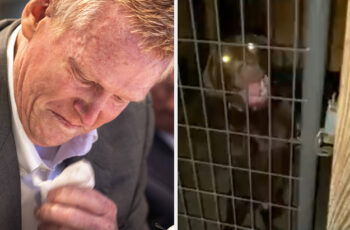The testimony about the video came after almost a full day of evidence from Dove, the SLED lieutenant, about the extensive data that was recovered from the cellphones of Paul, Maggie, and Alex. The information included calls and texts, as well as the timing of the communications and whether they were ever opened or answered.
But it also included deeper technical evidence about whether the phones recorded any steps taken by a person holding it, whether their cameras were activated intentionally by people using apps or trying to unlock the phone, and whether the orientation changed from portrait to landscape.
The evidence showed Paul read a final text on his phone at 8:48:59 from a woman friend about what movies she should watch that night. A text received from Gibson 36 seconds later was never read.
Data from Maggie’s phone showed she last read a text less than 30 seconds later. But data also showed about five minutes that her phone’s camera had been activated for a single second, which Dove said can happen when an iPhone tries to detect a face from someone trying to unlock a phone. The device did not unlock, but it subsequently recorded steps and orientation changes.
Maggie’s text messages showed she’d been communicating with family members and friends earlier in the day about the health of Alex’s father, who was critically ill in a hospital. That night, instead of returning to the family’s beach house where she usually preferred to stay, she returned to the rural hunting lodge. “Alex wants me to come home,” she texted a loved one that afternoon.
Data from Alex’s phone showed it was inactive and not moving between about 8.10 p.m. and 9:02 p.m. He subsequently tried to call his wife unsuccessfully, then texted her to tell her he was going to his mother’s place.
His defense team seized upon some of the data to suggest that Alex and Maggie’s phones were not together when hers changed orientation for a final time as the two devices were not simultaneously recording steps.
Data showed Maggie’s phone recorded a final orientation change at almost the same time Alex tried to call her around 9:06 p.m., when he was also starting his own vehicle to drive to his mother’s.
Defense attorney Phillip Barber suggested to Dove that this indicated someone had thrown the phone out a car window in surprise, but the SLED agent said he couldn’t testify at what angle the phone might have been tossed or landed. Maggie’s phone was found the following day a half-mile from the property.
Dove also testified that when he reviewed Alex’s phone he found that much of the call log from the night of the killings had been manually deleted.
At the end of Wednesday’s case, prosecutors also opened the door to evidence they hope to introduce about the troubled finances of Alex, who has since been charged with dozens of crimes for allegedly stealing funds from clients and the law firm where he worked as an attorney.
Waters asked Loving whether he knew about Alex’s finances, the debt he was carrying, or the risk of civil discovery Alex was facing in connection with a lawsuit that had been filed against the family in connection with a fatal boat crash for which Paul had been charged with manslaughter. Loving testified he did not.
Waters then asked whether Loving was aware that on the morning of the killings, Alex had been confronted by law firm staff about $792,000 in missing funds. After the judge overruled the defense team’s objection, Loving said he was not aware.
The judge is expected to make a ruling on Thursday about whether Alex’s alleged financial thefts can be admitted in court.
Prosecutors have said this is key to his alleged motive for murder, contending he killed his wife and son to distract from his financial misdeeds and gain sympathy.
To try to divert attention to other suspects, they allege he immediately began pointing to Paul’s boat crash as a possible motive for someone to seek revenge against the family, telling the 911 operator, first responders, and investigators about the threats he said Paul had received.
But testifying Wednesday, Gibson said he never had the sense from his friend Paul that there were any serious threats against his life. “He mentioned that people would comment about it, but nothing that I thought was real serious,” Gibson said.
Gibson also told the court it was tough for him to be taking the stand to give evidence against Alex.
“We had a good relationship,” Gibson said. “He treated me like one of his own.”
Source: https://www.buzzfeed.com/davidmack/alex-murdaugh-snapchat-video-paul-dog-kennels
